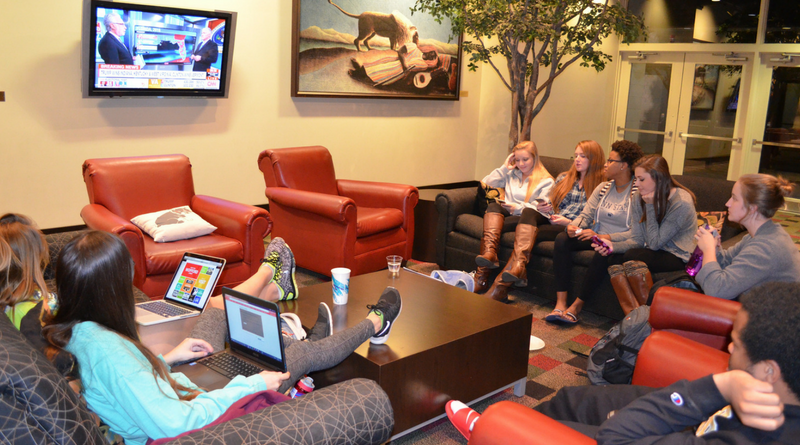By: Katie Sanders, Editor-in-Chief
Wednesday, Nov. 9, a fog settled over Wofford. Traffic was slower on the sidewalks, class curriculum suddenly seemed unimportant and lunchtime discussions didn’t rise to their normal volume. Less than 24 hours had passed since Donald Trump was elected as the 45th president of the Unites States and the Wofford community didn’t know how to process it. For some, Trump’s victory was welcomed. It represented a new era- a break from a political process that seemed fake and out of touch. Still, those who were happy didn’t quite know how to relate to the other half of campus that felt betrayed, marginalized and scared by the new President-elect and his visceral rhetoric towards minorities and foreigners. The question lingered among us all: “What do we do from here?”
I want to take a break from my normal series of articles to attempt to walk through an answer to that question. This reflection comes after several class periods where professors were gracious enough to pause their usual coursework and open up the time for respectful discussion between students of all political ideologies. For this I am grateful. I consider it a shining example of the kind of institution we attend and the quality of faculty that are dedicated not only to teaching us, but growing us into future citizens.
First, I would like to clear the air and say that it’s OK to care about the outcome of this election. Happy or sad, it’s better to feel something than nothing. Those who don’t seem to care at all are the most worrisome, because that political apathy is exactly what damages our democracy. By design, we get what we give from our political system. If we put apathy in, we will get results that are ill suited to citizens and their situations. Arguably this has already happened, but that’s a different conversation. The “quit your whining and move on” narrative that has been floating around social media for a week is not benefitting anyone. Conflict must be confronted and resolved, not swept under the rug.
What is also not beneficial is for us to discredit someone else’s feelings. Many conservatives who celebrated the outcome of the election are identifying other people’s feelings as “worry” or “unease.” These are euphemisms that hide reality. Muslims, Latinos, homosexuals, transgendered people, women and African-Americans are scared. These minorities have genuine, legitimate fear because of the horrible things Donald Trump has said about all of them. To deny that reality by blanketing their fear under the lesser emotions of worry or unease is to condone his hateful behavior, which, regardless of your political opinions, I hope we as educated college students can all agree is unacceptable.
On the other hand, let us not play the blame game. Some disappointed Clinton supporters have lashed out, blaming everyone possible for Trump’s victory. We will not foster progress by attacking third-party voters, women who didn’t vote for their fellow woman or minorities who didn’t swing liberal like they did in the last election. This is no less hateful of an attitude than the one Trump displays. If these sentiments continue, then hate really has won.
So, to answer the question: what we will do from here on out is rise to the occasion. We need to be leaders on our campus. Get involved in the clubs that support minorities. Be willing to have kind, insightful conversations with those who have differing opinions. Get involved in campus politics that shape the culture of our school. Get involved in Spartanburg politics that shape the culture of our city. Listen to each other with the intent of understanding, not responding. Volunteer with organizations and non-profits that work to promote the policies you feel strongly about. We, the citizens, are where the power lies to make America great or not. Let’s get to it.





























